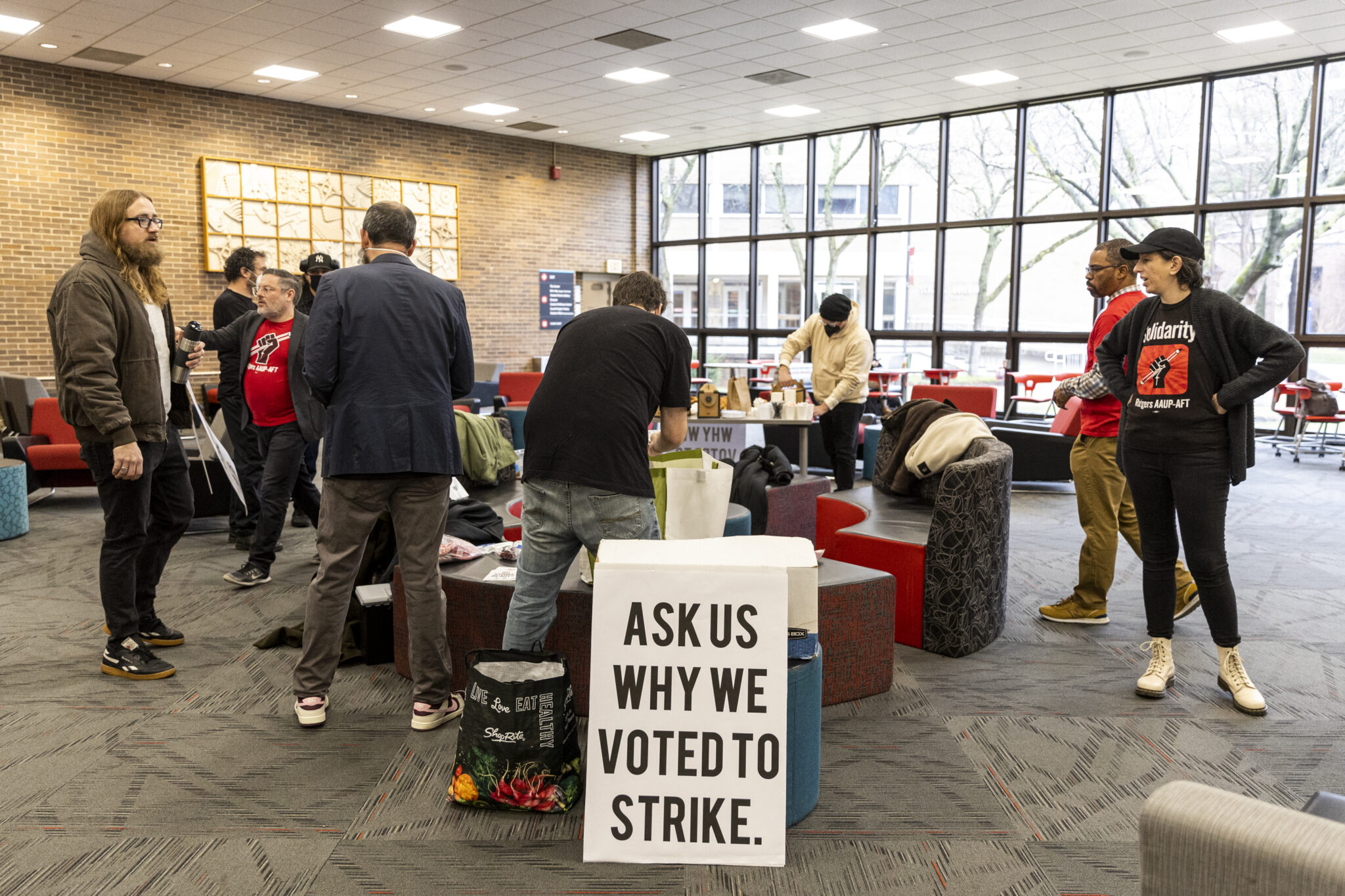
Michelle Berger is a student at Harvard Law School.
In today’s News and Commentary: DeSantis signed Florida’s anti-union bill, Florida’s teachers’ union immediately sued to enjoin it, Rutgers instructional unions ratified new contracts, and Sen. Dianne Feinstein returned to the Senate.
Florida Governor Ron DeSantis signed into law on Tuesday a measure that endangers the future of public sector unions in the state. SB 256 will affect Florida’s public sector unions in several ways. A key provision of the law prohibits the automatic deduction of public sector union dues from paychecks. The automatic deductions provision exempts police officer unions, corrections officer unions, and firefighter unions. Another provision of the law requires a recertification election if less than 60 percent of workers eligible for the union’s representation pay dues during a specified period. Other provisions in the law require unions to obtain audits of their annual reports and make it easier for union members to leave the union for any reason. DeSantis signed the bill, SB 256, during a news conference at a charter school in Miami.
While union density (the share of workers in a state represented by a union) in Florida is well below the national average, it is slightly higher than some nearby states, such as Georgia and Louisiana. And collective bargaining in Florida enjoys protection in the state’s constitution. Yet SB 256 appears to show DeSantis’ hostility to the state’s public sector unions, and in particular the state’s teachers’ unions. Several litigants including the Florida Education Association immediately sued to enjoin the law, arguing that it violates their rights under the First Amendment, Fourteenth Amendment, and Contracts Clause of the Federal Constitution. The complaint alleges that there is “no remotely sufficient governmental interest” to justify the legislation, and “much less is there any legitimate basis for singling out” only certain unions. Rather, the complaint alleges, Governor DeSantis’ “opposition to the viewpoint advanced by his political opponents—including their full-throated support for public education—is the manifest purpose for his punitive, unconstitutional initiative.”
In New Jersey, Rutgers University instructional workers voted to ratify new contracts with the university after a year of contract negotiations. A five-day strike last month brought teaching at the university to a halt, with the three unions of 9,000 instructional staff acting in solidarity. The new contracts include raises and, for long-time adjuncts, greater job security. 6,000 non-instructional workers remain in contract negotiations with the university.
And finally, in news which could have implications for President Biden’s Secretary of Labor nominee Julie Su, Senator Dianne Feinstein (D-Cal.) returned to the Senate yesterday. As I wrote last month, Su’s confirmation vote appears headed for a razor-thin margin.






Daily News & Commentary
Start your day with our roundup of the latest labor developments. See all
January 28
Over 15,000 New York City nurses continue to strike with support from Mayor Mamdani; a judge grants a preliminary injunction that prevents DHS from ending family reunification parole programs for thousands of family members of U.S. citizens and green-card holders; and decisions in SDNY address whether employees may receive accommodations for telework due to potential exposure to COVID-19 when essential functions cannot be completed at home.
January 27
NYC's new delivery-app tipping law takes effect; 31,000 Kaiser Permanente nurses and healthcare workers go on strike; the NJ Appellate Division revives Atlantic City casino workers’ lawsuit challenging the state’s casino smoking exemption.
January 26
Unions mourn Alex Pretti, EEOC concentrates power, courts decide reach of EFAA.
January 25
Uber and Lyft face class actions against “women preference” matching, Virginia home healthcare workers push for a collective bargaining bill, and the NLRB launches a new intake protocol.
January 22
Hyundai’s labor union warns against the introduction of humanoid robots; Oregon and California trades unions take different paths to advocate for union jobs.
January 20
In today’s news and commentary, SEIU advocates for a wealth tax, the DOL gets a budget increase, and the NLRB struggles with its workforce. The SEIU United Healthcare Workers West is advancing a California ballot initiative to impose a one-time 5% tax on personal wealth above $1 billion, aiming to raise funds for the state’s […]